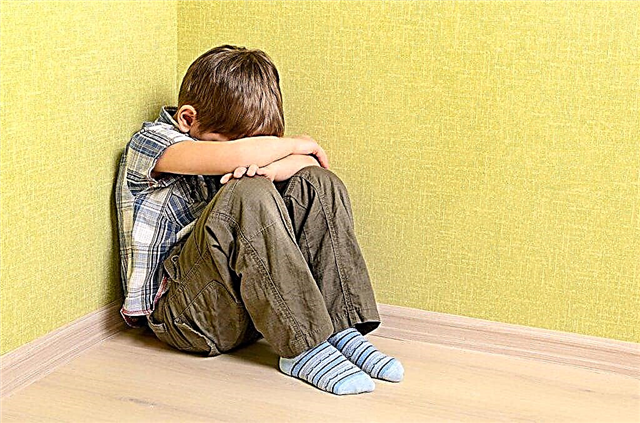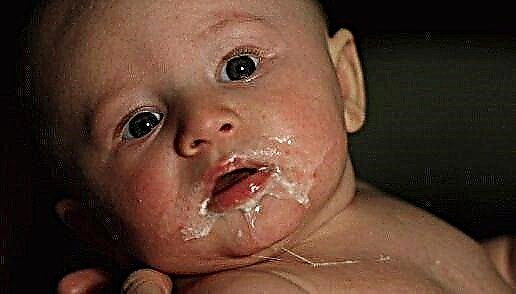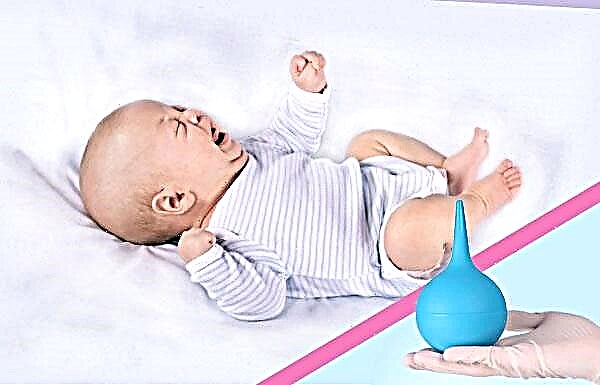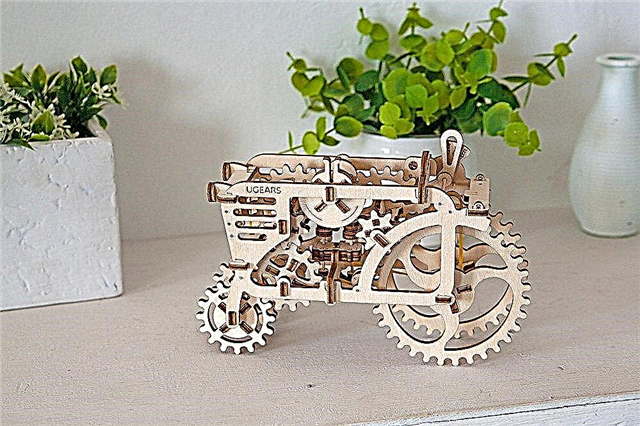Some kids twist their ears during the day, others suck their fingers and pull themselves by the hair, others periodically bang their heads against the wall, the fourth pick their noses - the variety of oddities in babies is amazing. It should be understood, however, when strange habits in young children are a relative norm, and when to seek help.
When strange behavior appears, many parents, especially inexperienced, do not get scared, begin to scold the baby or take him to specialists. But in most cases, it is enough to simply ignore such unpleasant childish antics.
Oddities as a stage in childhood development
Often, alarmed mothers share their observations with each other: “Mine pulls on her curls while eating,” “My head beats on the floor,” “Mine is constantly making faces,” “My fingers are sucking every day,” etc. .d.

From about 6 months old, children begin to study the capabilities of their own body. Hence, a variety of grasping, twisting objects, repeating facial expressions of parents, touching the genitals. There are often cases when children study the world around them with the help of their foreheads, actively banging their heads on the walls and floor.
Such bad and, frankly, strange habits (from a parental point of view) usually do not last long, can replace each other and disappear without a trace. Many parents simply do not pay attention to such oddities, rightly believing that they will soon disappear.
It is a different matter if such actions not only do not pass, but also become more frequent. For example, a child sucks a thumb in strictly defined situations and more and more often. In addition, you cannot wean yourself or reduce the intensity of the habit on your own.
In this case, expert advice and specialized support (sometimes pharmacological) may be required. But to understand this, it is necessary to take a closer look at popular children's antics and evaluate their likely "damage" to the child's mental health.
Complacency
By the age of three, children often perform repetitive actions only in order to calm down in a stressful situation, to rest or "shake up" a little. Certain movements and habits can be, frankly, intimidating. Let's take a closer look at these oddities.
The child bangs his head against the walls

Such actions are quite common, and in the overwhelming majority of cases they do not lead to any serious consequences, since the baby is usually well aware of his behavior and does not harm himself.
In addition to complacency and a desire to relax before falling asleep, banging your head on hard surfaces can be caused by the following factors:
- the desire to attract attention (the baby, having noticed a couple of times that her mother reacts sharply to hitting her head against the wall, begins to practice such actions to attract attention or manipulation);
- hysterical attack (hysterics is often accompanied by aggressive behavior, while negative emotions can be directed not at the people around them, but at themselves);
- disappointment in something (for example, a child who has failed to accomplish something may shout, bang his head on the floor, or hit the back of the head with his fists);
- self-knowledge and perception of painful sensations (a baby in early childhood is interested in his feelings, including pain, as a result of which he can experiment by banging his head on the floor);
- malaise (crumbs often beat their foreheads due to flu or colds, teething, otitis media, high intracranial pressure).
What should parents do?
Most often, all actions end up with a maximum of bruises, since the child does not cause serious harm to himself, but something still needs to be done. First of all, you need to wrap hard surfaces with soft fabrics to soften the blows.
In addition, you need to soothe the baby in every possible way, for example, bathe him with the appropriate aromatic oils (provided that there is no allergy), exclude swearing and screams, turn on the metronome, its rhythmic sound can calm the child.
If the child is developing at a normal pace, without any abnormalities, do not worry too much. However, if this oddity persists after three years, there are other unfavorable features, or the crumbs inflict serious harm on themselves, you must definitely seek medical and / or psychological help.
Thumb or clothing sucking
When babies grow up breastfed and sucked on their mother's breasts as much as needed, such an unpleasant feature as pushing fingers into their mouths develops quite rarely. Well, or such cases are episodic. The situation is completely different with the artificial.
However, any child can begin to suck his thumb if he wishes to calm down in this way. So he wants to remember those pleasant moments when his mother held him on her arms and fed him with breast milk or a mixture from a bottle.

Usually, experts do not advise sounding the alarm if a child under 3 years old has such a bad habit. And, most likely, this oddity will disappear very soon, since grown-up children can relax and calm down in other ways.
What should parents do?
There are many recommendations for correcting the habit, but some of them are quite radical and can even harm your baby. Most often, psychologists advise to keep children occupied, for example, by modeling, putting together a mosaic or a designer. This will simultaneously load children's hands and calm the nervous system.
Such distracting maneuvers will have to be performed constantly, since unwanted habits are formed quickly and disappear for a long time. At the same time, it is extremely important not to scold the child, since negative emotions will only increase anxiety and make them even more nervous.
Commitment to rituals

At about one and a half years of age, children often have certain ritual actions that are performed every day. For example, some kids carefully place toys in a row or want to dress according to a strict algorithm (first, a blouse is required, and only then tights). If this ritual is violated, the child loses his temper, gets angry and throws a tantrum on his parents.
Where does this strange habit come from? Little kids strive to live in an orderly space, in a stable state. Such desires and actions are absolutely natural, especially since it often happens in the form of a game.
You need to worry if the child is obsessed with ritual actions, while interest in other activities and communication with peers or adults is completely or partially absent. This oddity could be indicative of autistic tendencies.
What should parents do?
If the baby is active, develops normally, is interested in the world around him, but at the same time performs some ritual actions, there is nothing to worry about. But, if parents are worried about this behavior (or other "bells" sound), you should seek qualified help.
Examining your body

Exploring your own body takes many forms. The simplest is to pick your nose, ear or navel. The child is very interested in what is there, inside. This habit can hardly be called a strangeness at all, unless, of course, the baby does it in public, and for show.
Another thing is the study and touch of intimate places. A similar feature can arise very early - literally at 7 - 8 months of age, when diapers are removed from the crumbs and he, finally, can engage in a careful study of previously hidden organs.
Growing up, the child begins to repeat such actions, because he gets some satisfaction from touching. It should be understood, however, that such reactions are not a deviation if they are single and non-public. It is not normal if the baby seeks to touch himself often, and refuses to play with peers and other activities.
Experts do not recommend prohibiting the examination of the body, scolding or taunting the child. It is important to switch the child's interest to something else. If you fill the baby's leisure time, he will not be bored, therefore, he will not have to talk about masturbation.
As a conclusion
Some strange habits bother adults, but they are not something scary and terrible. For example, if a child shakes his head at especially tense moments, most likely, he just calms down and relieves anxiety.
Other oddities are associated with inappropriate behavior when, for example, a baby picks his nose in a public place. But in any case, it is important to build the correct strategy of behavior, which eliminates pressure on the baby.
First of all, psychologists advise calming the baby, relieving his anxiety and anxiety in various improvised ways. The main thing is not to laugh at the habit and the child, otherwise he will have distrust of his parents and disbelief in the benevolence of the world around him.
But, if you notice any deviating features, an excessive increase in the intensity of unwanted or strange actions, it is important to immediately seek qualified psychological support and, possibly, medical help.



